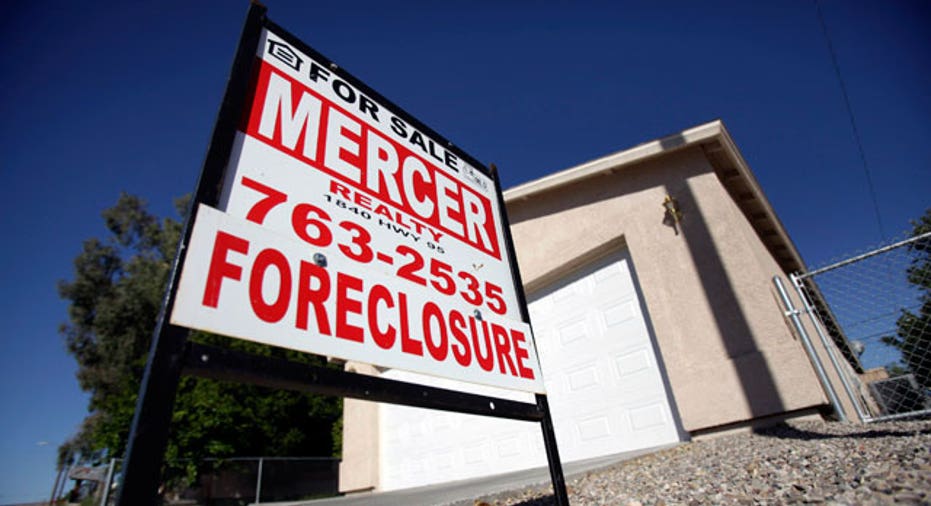For Rent: Entire Neighborhoods

In apartment complexes all across the U.S., hundreds of renters are often clustered in a single building. Those buildings are usually managed by a landlord or management company that hires the super, the plumber and the electrician.
Now, think of that same situation -- except imagine that each apartment is instead a single-family home.
That's what Gary Beasley, managing director of Waypoint Homes, said is this private-equity real-estate funds objective. "Down the line, we hope to have a billion dollars worth of homes, and we'll act as the long-term landlord and make money on rent," he said.
Waypoint Homes, started in 2009, was one of the first of its kind to emerge from the wreckage of the real estate crash with a different model for making a profit. Now Waypoint -- which according to a source with close knowledge of the deal got a $25 million investment from Columbia University's endowment fund -- has plenty of company. Buying up houses -- mostly through short-sales or foreclosures -- is a hot new market, and the trend toward purchasing those houses in bulk is also warming up, fast.
Troubled mortgage giant Fannie Mae seems to be taking notice. It recently announced that it was going to sell off 2,500 of the approximately 120,000 foreclosed homes in has in its inventory in eight of the hardest-hit metropolitan areas.
The total worth of the homes is estimated at around $320 million, and houses ranging from Florida to Nevada to Detroit to Los Angeles are going to put into the housing pools. Then qualified investors will be able to bid on these properties in bulk, which often means a big discount.
“We take blights in the neighborhood and turn them into one of the nicest houses on the street….”
But this emerging market in the bulk sales of homes is not for every investor. The requirements are steep. Investors need at least $250,000 to be in the running and have to be able to prove that they will be renting these homes out as long-term deals.
The Fannie Mae pilot program is a small one, but the idea of having the government entangled in this new rental market is not without controversy. Critics argue that the government shouldn't be giving such big discounts to big investors, while others say it's necessary to get these houses off Fannie Mae's books and help stabilize the market.
"One of the biggest problems facing the housing market right now is this supply of excess foreclosed homes and homes that will go through the foreclosure process," said Matthew Bass, vice president of the fixed income group at Alliance Bernstein.
Bass estimates that approximately 6 million more homes will go through foreclosure in the next five years and that, in some locations, home prices could drop an additional 3- 5%.
Fannie Mae said it's still looking to improve individual sales to homeowners and small investors, which make up more than half of all its sales. But a Fannie spokesman said opportunities such as its pilot program could help further stabilize the housing market.
"We believe this initiative holds promise for providing support to local neighborhoods that were especially hard hit by the housing crisis and will help meet rising demand for rental housing in many communities,"said department official Michael Stegman in an FHFA statement.
This uncertainty surrounding shadow inventory is a very real problem, explained real estate consultant and author Dani Babb.
"Right now there are banks that are giving homeowners 30-day extensions because they so busy with foreclosures," she said. "And that's not going to change except soon, bigger homes are going to hit foreclosure."
Still Babb said she isn't convinced the Fannie Mae deal is a smart one for investors.
"They should be leery," she said. "The goal for Fannie is to get these distressed properties off the market, off their balance sheets. But the properties are potentially toxic, and it scares me when the government steps in. You need to provide them with a plan and give so much documentation."
But the stringent requirements, Babb said, are understandable given the consequences that Fannie Mae would face if it didn't do due diligence and wound up with owners defaulting like the old buyers.
Beasley, whose company owns about $220 million in property and is interested in investing in Fannie Mae's pilot program, said while it wasn't easy to structure, he thinks Fannie has done a good job so far.
"We all have the information that we need as a bidder to come up with and value each home before making the bid," he said. "And being able to buy a large portfolio like this in one fell swoop can be a lot easier than buying houses individually."
Beasley also points out that once a package of properties has been purchased, it's easier to operate since the houses are all in a condensed area.
"We are not flippers that come in and resell the properties at higher prices. That doesn't do anything for the community," said Beasley. "We take blights in the neighborhood and turn them into one of the nicest houses on the street. We make a profit but we're also helping families and neighborhoods."
Fannie Mae had no comment on when the transaction would take place, but reports indicate it will be in the next few months.
"It's a mechanism whereby the federal government can attract private capital to absorb some of the excess supply," said Bass. "And I think while it's not a silver bullet, it could be a good start towards supporting a recovery."



















